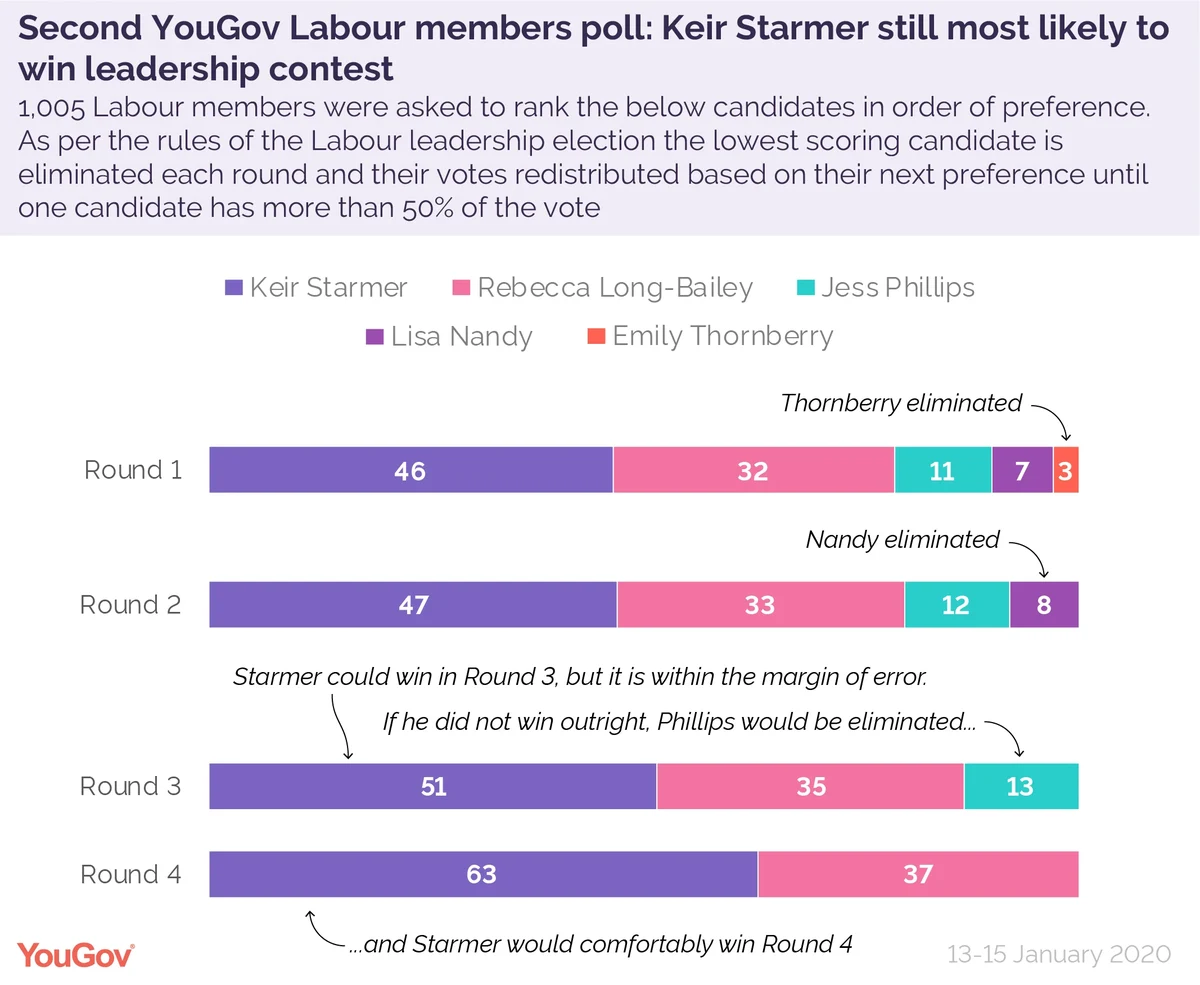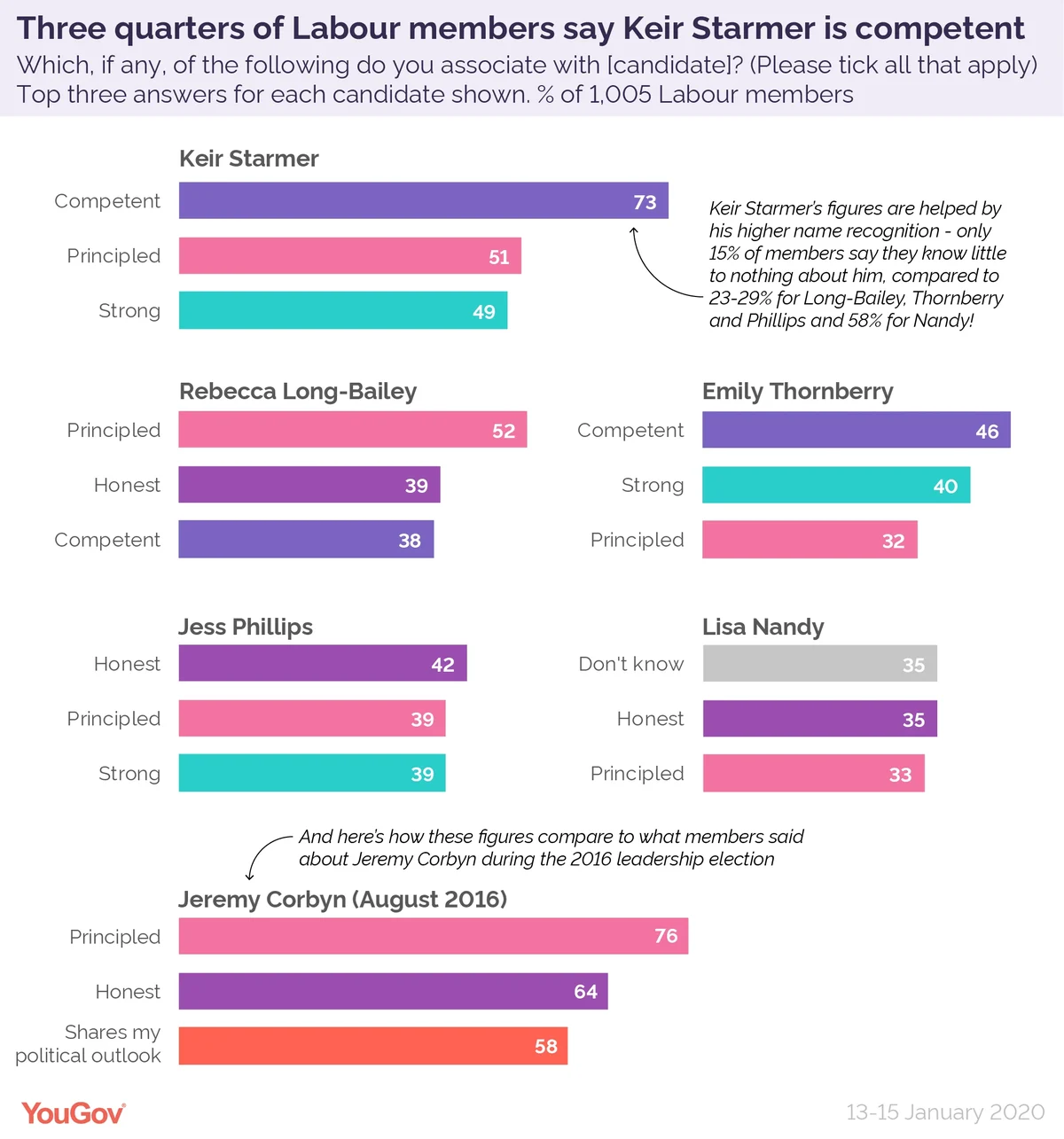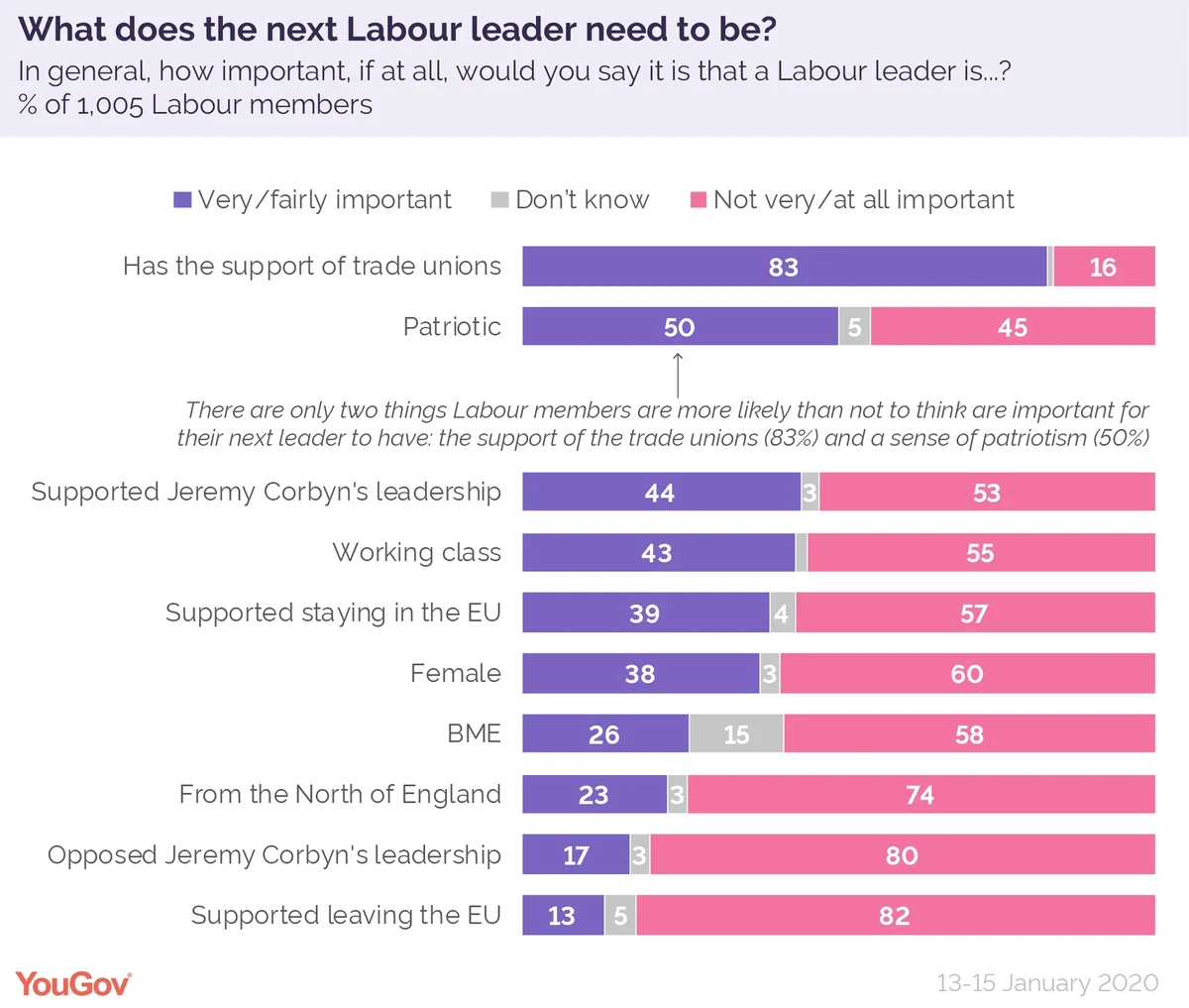Angela Rayner also looks hard to beat in deputy leader race
As the Labour leadership contest rumbles on and with five contenders having pass the first hurdle of MP nominations, here are six things a new YouGov survey of 1,005 Labour members has discovered.
This poll only includes party members, and not the other two parts of the Labour ‘selectorate’ (the 14,700 who have signed up this week as registered supporters this week, and the members of affiliated organisations). We will be including these in the research we conduct later in the campaign.
Keir Starmer and Angela Rayner most likely to win leadership and deputy leadership
The survey shows Starmer set to beat Long-Bailey in the final round of voting by 63% to 37% - almost exactly the same result as our first survey at the end of December showed.
(Starmer could technically win in the third round of voting with a tally of 51%, but this result is within the margin of error of <50% so we have calculated the full four rounds of voting)
The results show Emily Thornberry being knocked out in the first round, Lisa Nandy in the second and Jess Philips the third.
A simulated deputy leadership contest has Angela Rayner automatically winning in the first round by scooping 57% of the vote. The next most popular candidate – Richard Burgon – finishes a distant second on 15%.
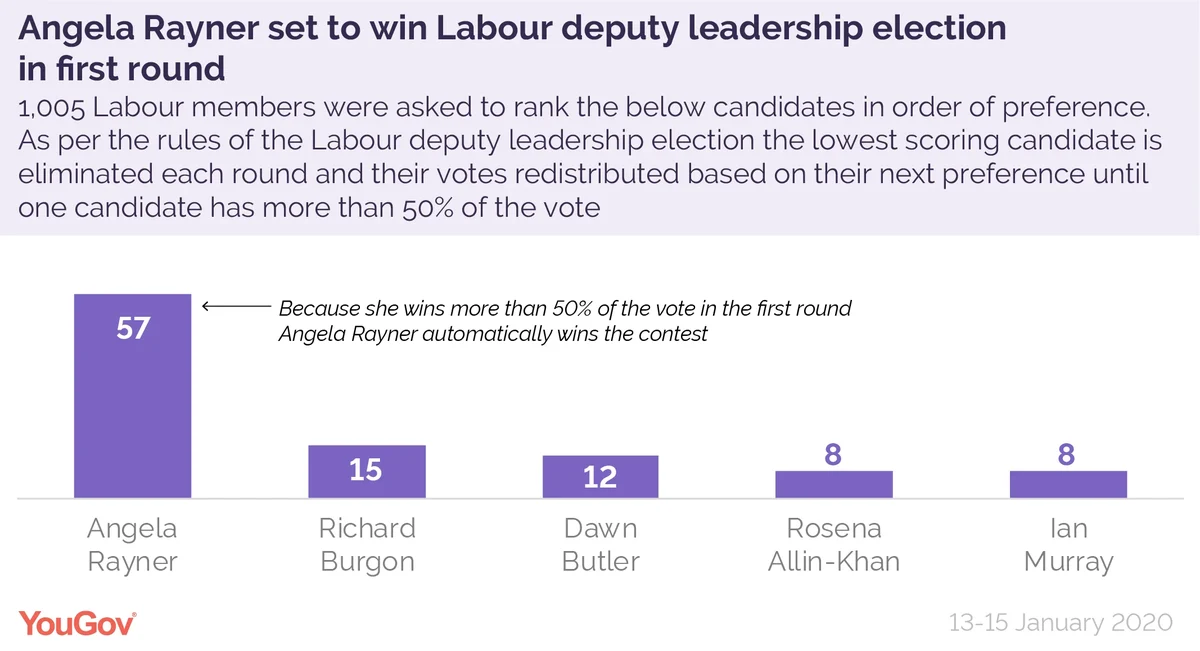
A recent ballot of Momentum members saw 70% voting in support of the organisation backing Rebecca Long-Bailey for leader, with 52% saying likewise of Angela Rayner for deputy leader. The results from Momentum members in our survey mirror these figures closely – 73% picked Long-Bailey as their first preference and so did 52% for Rayner.
Two election losses aren’t enough to convince Labour members that Corbyn did a bad job
Despite the Labour party suffering their worst drubbing at the ballot box since 1935, most Labour members (58%) think Jeremy Corbyn performed well as party leader, including 25% who think he did “very well”.
There are clear divisions among the membership, however – while fully 97% of those who want Rebecca Long-Bailey to be leader think Corbyn did a good job, this falls to 36% among those who back Starmer and 31% among Philips voters.
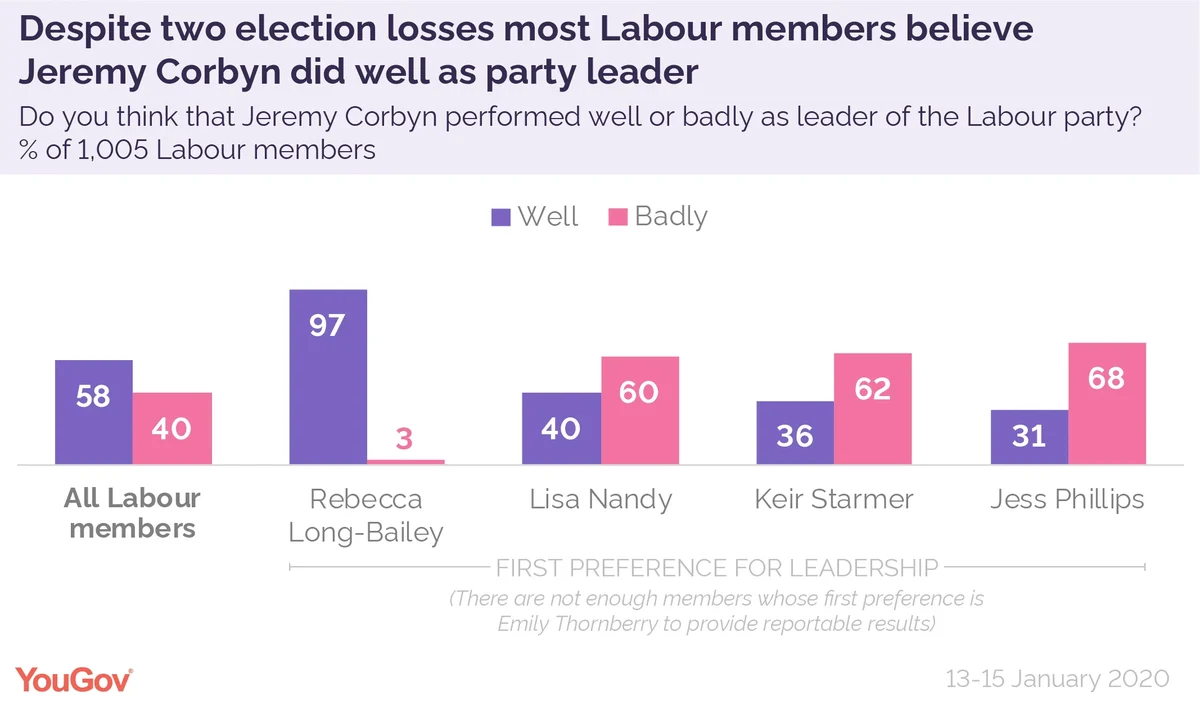
Following an interview in which Rebecca Long-Bailey scored Jeremy Corbyn’s leadership 10 out of 10, it became all the rage for journalists to ask candidates to score the outgoing Labour leader. Emily Thornberry gave Corbyn 0/10 for winning elections and 10/10 for principle, while Clive Lewis (who has since failed to qualify) gave a 6/10.
A YouGov survey of the general public last week found that 42% of Brits gave the Labour leader a mark of 0/10, with the average score being 3/10.
Labour members rate their outgoing leader’s performance far more favourably, however, giving an average score of 6/10 (which according to another YouGov study would most closely correspond with a review of “somewhat good”).
Again, the score differs wildly depending on who members intend to vote for – Long-Bailey backers on average gave a score of 9/10, while those casting their first preference for Nandy or Philips were most negative at 4/10.
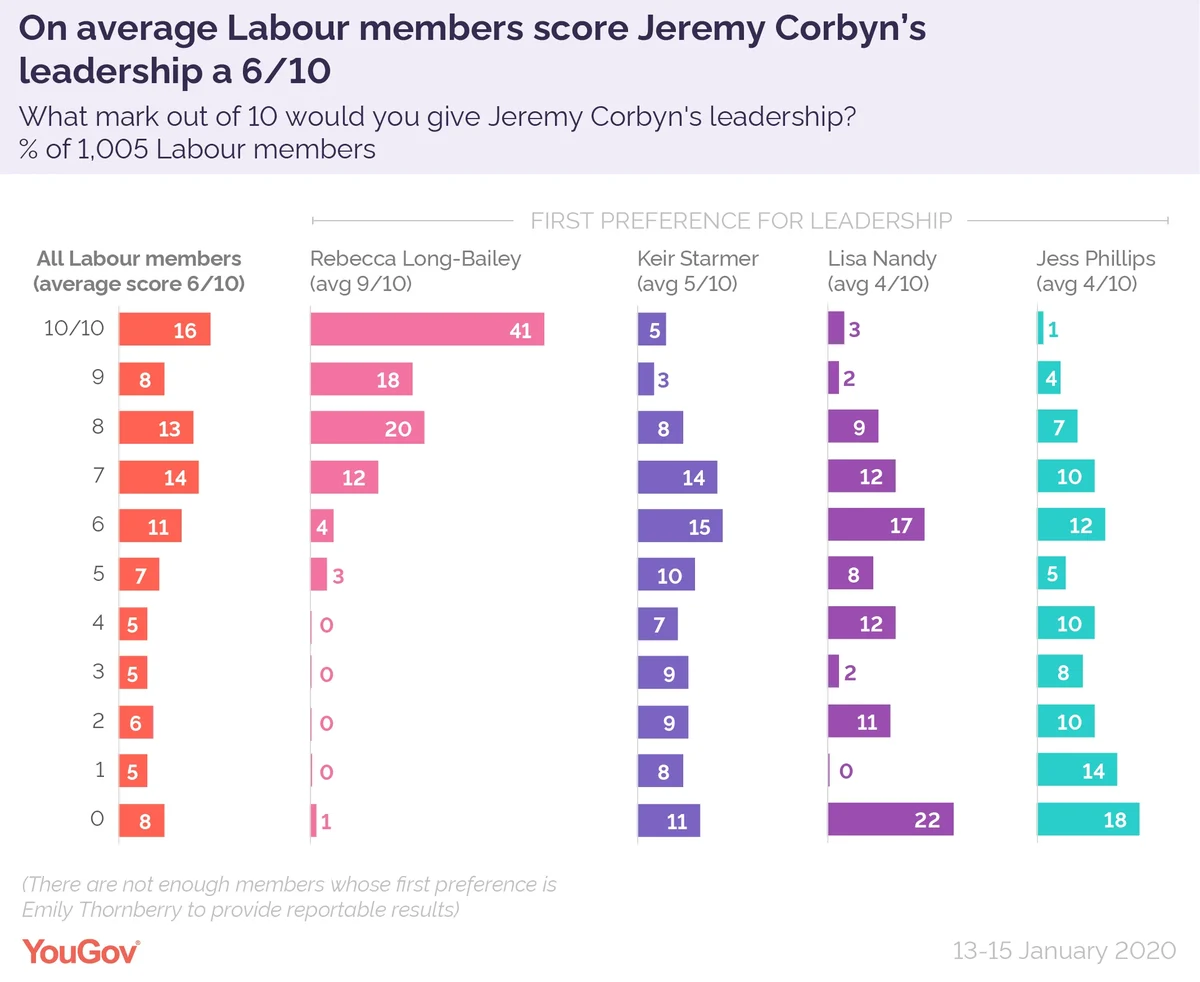
Lisa Nandy’s profile is far lower than the rest of the field
While Lisa Nandy might be getting plenty of attention from political journalists, among Labour members themselves she is far less well known. Just 42% of members say they feel they know a great deal or fair amount about her – for context the other four candidates scored from 70% (Long-Bailey) to 85% (Starmer).
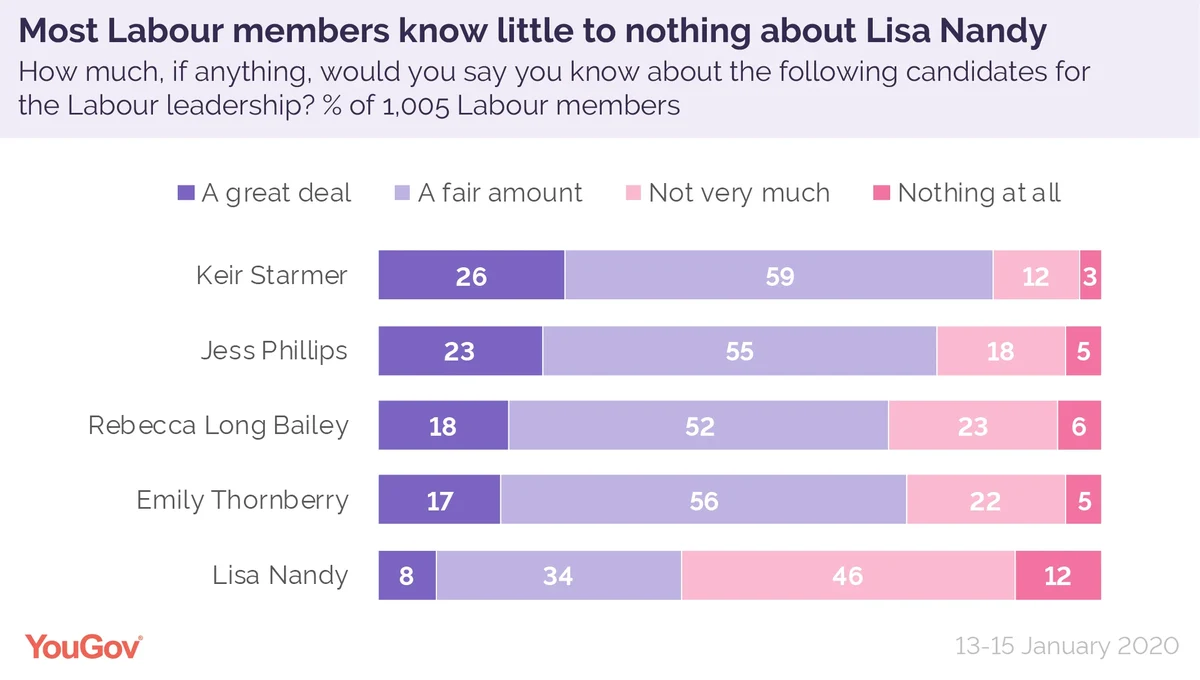
Keir Starmer performs best on word association, with 73% calling him competent
Keir Starmer clearly comes off best in the word association we asked Labour members to perform for each candidate. Fully 73% of members described him as “competent”, this being the word they most commonly connected him with.
He is helped somewhat by his greater name recognition in this regard, but only one other candidate also had competence top their list: Emily Thornberry, at the much reduced figure of 46%. Both candidates nevertheless score much better in this regard than Jeremy Corbyn did when we asked members the same questions about him during the 2016 leadership election – just 35% of members considered Corbyn competent at the time.
The word members are most likely to associate with Rebecca Long-Bailey is “principled”, at 52% (although Keir Starmer also scored 51% on this measure). It is also worth noting that “principled” placed in the top three attributes for every single candidate, and indeed when these same questions were asked about Jeremy Corbyn in 2016 he achieved a much better score of 76%.
Jess Phillips is most likely to be described as “honest”, at 42%.
Lisa Nandy’s lower profile really shows on this test, with the joint top answer people giving for her being “honest” and “don’t know”, both at 35%.
What does the next Labour leader need to be?
With the crumbling of the Red Wall there has been much chatter about what kind of person the next Labour leader needs to be. Some say they need to be Northern or working class in order to reconnect with Labour’s traditional roots, others insist that it is long past time the party had a female leader.
According to the membership, however, there are only two things it is important for the Labour leader to have: the support of the trade unions (83%) and a sense of patriotism (50%).
Next on the list was the belief that it is important that the next Labour leader have been a supporter of Jeremy Corbyn’s leadership, at 43%. This contrasts with the 17% who think it important that they have been an opponent of the Corbyn project.
Only 43% think it important that the next Labour leader be working class, 38% say it matters that they are female and 23% a Northerner.
While some have scoffed at Labour’s need to re-find its love of country, the fact that 50% of members want the next leader to be patriotic shows they take the matter more seriously. Rebecca Long-Bailey faced ridicule from some quarters for her call for “progressive patriotism” – to such an extent that she seemingly dropped the concept from her leadership bid – with the concept branded an oxymoron. Nevertheless, fully 55% of members say they think it is possible for there to be a ‘progressive’ form of patriotism they would find acceptable.
Photo: Getty


